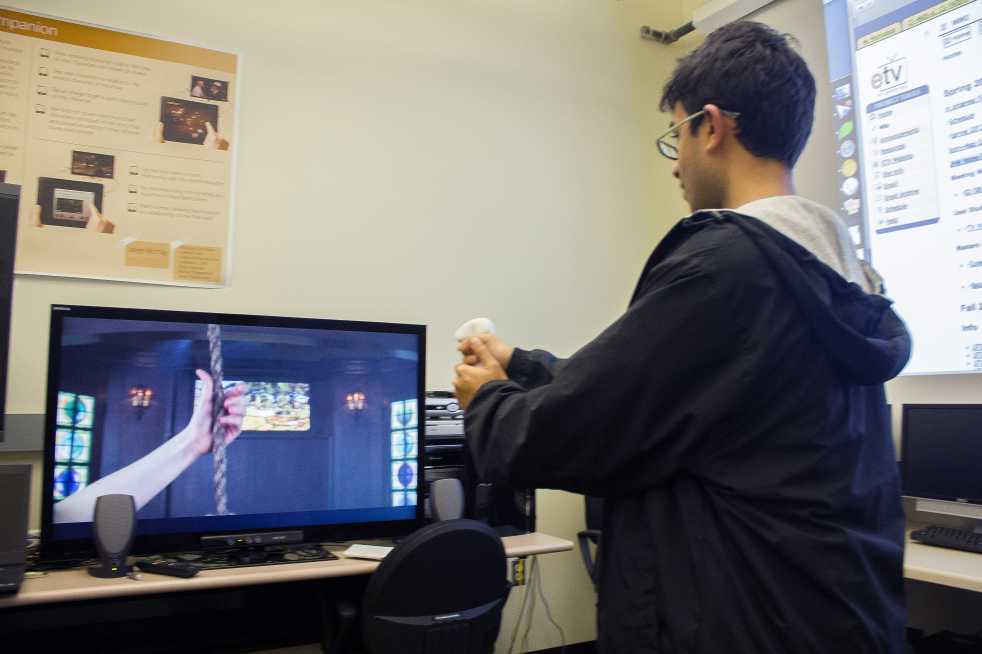As television programs continue to evolve in response to ever-changing audiences, so does the medium of delivering the broadcasting. Social media are also expanding their presence, and all the while, digital artifacts are becoming ubiquitous tools in everyday life.
The speed of innovation has a tendency to overtake the thinking of designers, and as a result, the future of the relationship between television and other digital media has uncertain, yet exciting, possibilities.
Dr. Janet Murray directs the Experimental Television lab.
The digitalization of TV continues to shape how we experience the medium. Dr. Janet H. Murray, the Associate Dean for Research and Faculty Affairs in the School of Literature, Media and Communication (LMC), directs the Experimental Television (eTV) lab. The group of student and faculty explores new digital media through prototypes.
Dr. Murray has made several publications on the evolution of media and its role in society. In her book Hamlet on the Holodeck, Dr. Murray argues that interactive narrative forms including emerging innovations in social and TV media can match, and possibly even exceed, the power of more traditional storytelling forms. She predicts upcoming innovations in games and extensions for TV series across the internet that mirror developing technologies.
Dr. Murray’s research also addresses the potential for TV elements like multisequential news and entertainment using several screens. These elements are telling, especially when analyzing trends in current news media.
The future of watching TV involves new and exciting outlets.
Emerging technology entering the market is exemplified by smart TVs. Smart TVs manufactured by Samsung and Google have proven quite popular. The most innovative forms of interactive TV, smart TVs enable users to perform a variety of functions.
The Google TV, for example, functions much like an iPad combined with a traditional TV. While the device can play satellite or cable TV, users can also access the internet and use apps like Netflix, Pandora and even Zynga Poker. The increased digitalization of TV has broad impacts for many shows. Especially with the advent of online services like Hulu and Netflix.
The future of watching TV involves several new and exciting outlets to experience diverse programming. These innovative elements focus on widespread digitalization and emphasize the usage of the internet.
